News

Double down to tackle Sri Lanka’s freshwater tsunami
The death toll of Cyclone Ditwah is 193 and counting. Hundreds more have gone missing. Tens of thousands have been rendered homeless. People have lost their lives. Thousands mourn the loss of friends and families. And an entire population grieves and wonders when and how livelihoods will be restored, the displaced provided alternative housing. They wonder how long food, medical, power and communications infrastructure will remain disrupted. This is not the first tragedy that has struck Sri Lanka. Sri Lanka has known floods, droughts, landslides although none of it in the scales unleashed by Cyclone Ditwah. Sri Lanka was hit hard by the tsunami of 2004. This time it is a freshwater tsunami engulfing the entire country. What is unique about this disaster is that not a single district has been spared. Sri Lanka has lived through a devastating war that lasted 30 years. Through it all, as a nation, Sri Lanka survived and this is mostly thanks to a remarkable determination to come together to help one another. Volunteerism is truly extraordinary. Generosity and solidarity have seen us through many terrible times.
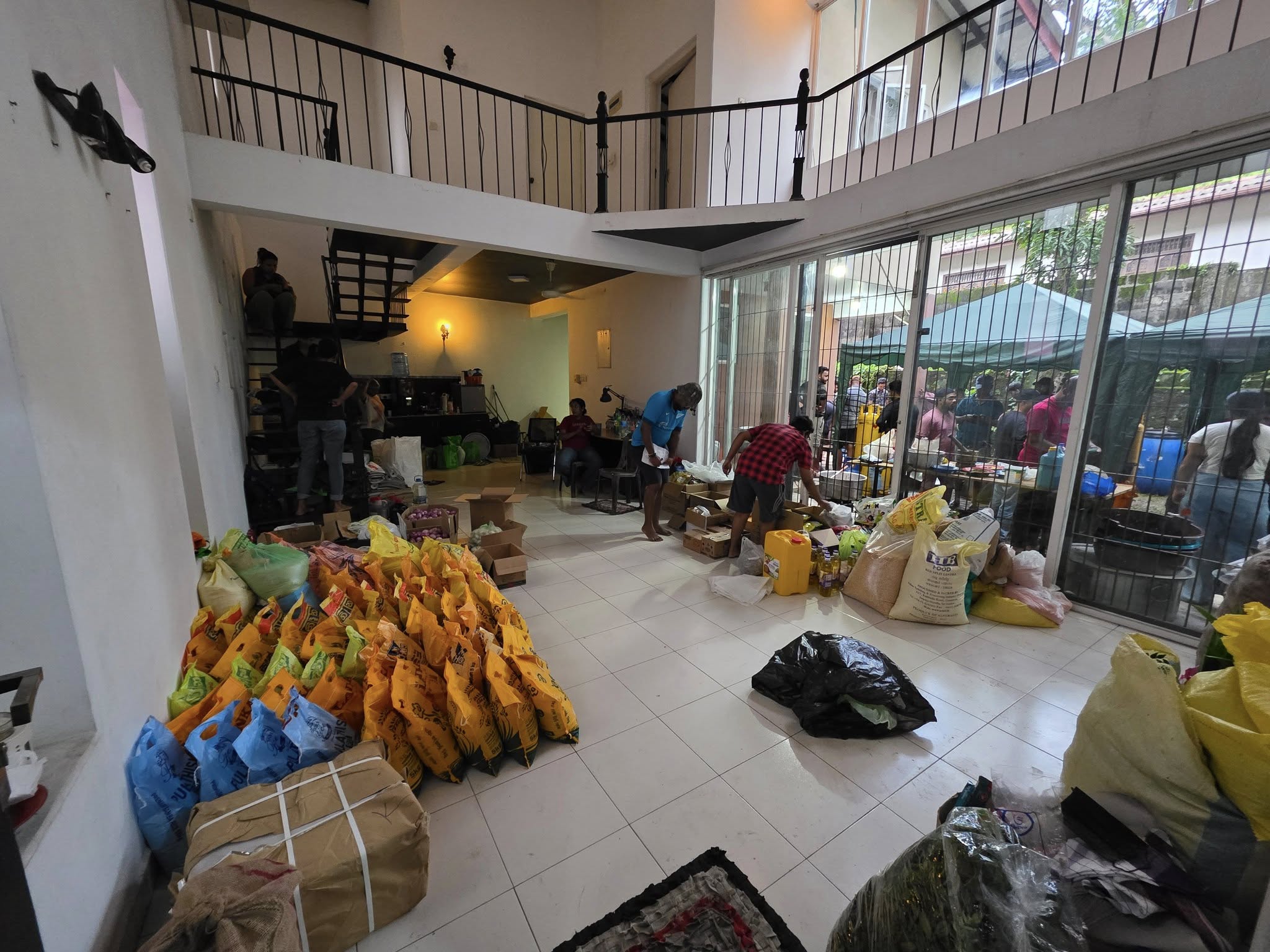 Wijerama Community Kitchen
Wijerama Community Kitchen
This is clearly evident even today. Ordinary citizens, as individuals or in groups, have stepped forward to do their utmost and ensure that no one goes hungry, no one suffers without water and indeed no one is left without shelter. They work together and in conjunction with relevant state institutions and officials. They are tireless. They epitomise the resilience of the island nation.
Nevertheless, the tragedy is of such monumental proportions that it is clear that their efforts alone will not bring back normalcy. We simply cannot do it alone. Sri Lanka is a small island nation and one that has been struggling to get its economy back on track after an unprecedented collapse a few years ago. However, despite Sri Lanka's own trials and tribulations, Sri Lanka and Sri Lankans have always done their best to help friendly nations whenever they were in distress. Today, we are in desperate need of empathy, kindness and support. The victims have suffered unimaginably. We cannot abandon them. We strongly believe that the international community will not forsake us in this, the hour of our greatest tragedy in recent times. There are, or will be shortages of food, medicine, shelter and essential supplies. Sanitation and fresh water supplies will need to be restored. Communication lines will need to be urgently repaired and upgraded.
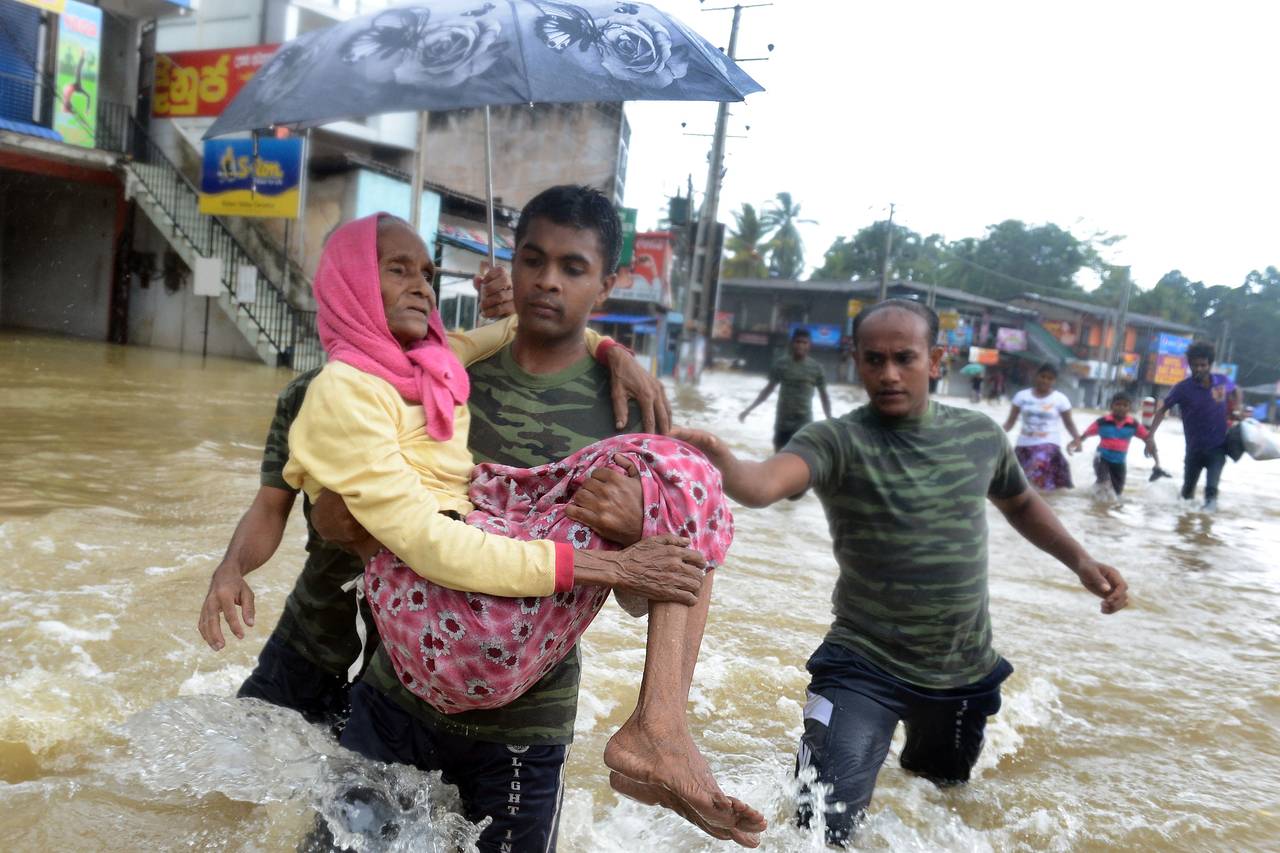
Looking a little further into the future, it is inescapable that more permanent repairs related to this disaster including restoration of infrastructure, relocating people and rebuilding lives offers a challenge that is formidable and will obviously come at a high cost, one that Sri Lanka will struggle to bear as we are just climbing out of another economic crisis. I call upon our donors and international partners to extend their patience and compassion in the weeks and months to come. The government will need the support and fiscal headroom to look after its people and rebuild their infrastructure even as we continue to honor our obligations. You can help and we sincerely hope you will. As for my fellow Sri Lankans, especially elected representatives of all parties, past and present, be there with your people. We are blessed to have a president of impeccable integrity who is leading the recovery and has the humility to accept your help with gratitude. Do whatever you can for your friends near and far. Support the Divisional Secretaries and others are doing their utmost to provide relief. In short, do what you can to help galvanize and coordinate aid to those who need it the most. Sri Lanka has been through a lot, but we have always prevailed when history wrote us off. No war, no tsunami, no default, no flood or no terror attack or coup has ever or will ever change that.

By Krishantha Prasad Cooray

Sri Lanka Apparel Sector Braces for Tariff Shock as EU Demand Surges
Sri Lanka’s apparel sector enters the final quarter of 2025 navigating one of its most precarious phases in years, as the industry contends with a 20 percent U.S. tariff, uncertainty surrounding the EU’s pending GSP+ renewal, and shifting global consumer demand.
Despite these headwinds, October’s export performance remained broadly flat—declining just 0.05 percent year-on-yearsupported largely by strong demand from Europe.
Data shows that exports to the European Union surged 12.53 percent in October, cushioning declines in key destinations such as the United States (-1.92%), the United Kingdom (-11.99%), and other markets (-9.84%).
The EU’s strong pull is especially significant given that access to GSP+which provides duty-free entry for most apparel categories—remains uncertain. Any lapse could trigger cost escalations, disrupt pricing structures, and undermine Sri Lanka’s competitiveness against regional rivals like Bangladesh, Vietnam, and Cambodia.
For the first ten months of 2025, the picture is firmer. Cumulative apparel exports grew 6.12 percent, driven by a 14.05 percent spike in EU-bound shipments. Exports to the U.S. expanded 1.37 percent, while the U.K. and other markets recorded modest increases of 0.98 percent and 8.31 percent respectively. Yet exporters warn that these improvements mask deepening structural vulnerabilities.
The Joint Apparel Association Forum (JAAF) notes that the sector’s ability to maintain stability reflects resilience and sustained investment, but industry insiders caution that growth is increasingly fragile. With the U.S. tariff hike already eroding margins, many manufacturers are struggling to compete with tariff-advantaged suppliers.
Several factories report that American buyers are pressing for price reductions or shifting orders to countries with preferential access.
Adding to the pressure is the EU’s still-pending decision on the extension of GSP+, expected in early 2026. If Sri Lanka loses the concession, apparel entering the EU could face tariffs ranging from 9 to 12 percent—an increase that exporters say would “wipe out the margin advantage” that currently sustains European orders.
Monthly export earnings reflect the volatility. After peaking at USD 479.14 million in August, exports fell to USD 403.01 million in September before edging up to USD 406.14 million in October, suggesting that recovery is stabilizing but far from entrenched.
The data underscores a sector caught in a tense global transition. Diversification efforts are improving exposure to non-traditional markets, while European demand continues to provide a buffer. But without stronger policy support, swift diplomacy on U.S. market access, and proactive engagement with Brussels on GSP+, Sri Lanka risks entering 2026 with weakened competitiveness.
The apparel industry remains one of the country’s largest export earners—but its resilience is being tested. Its future now hinges less on seasonal orders and more on decisive trade strategy from the government in the months ahead.
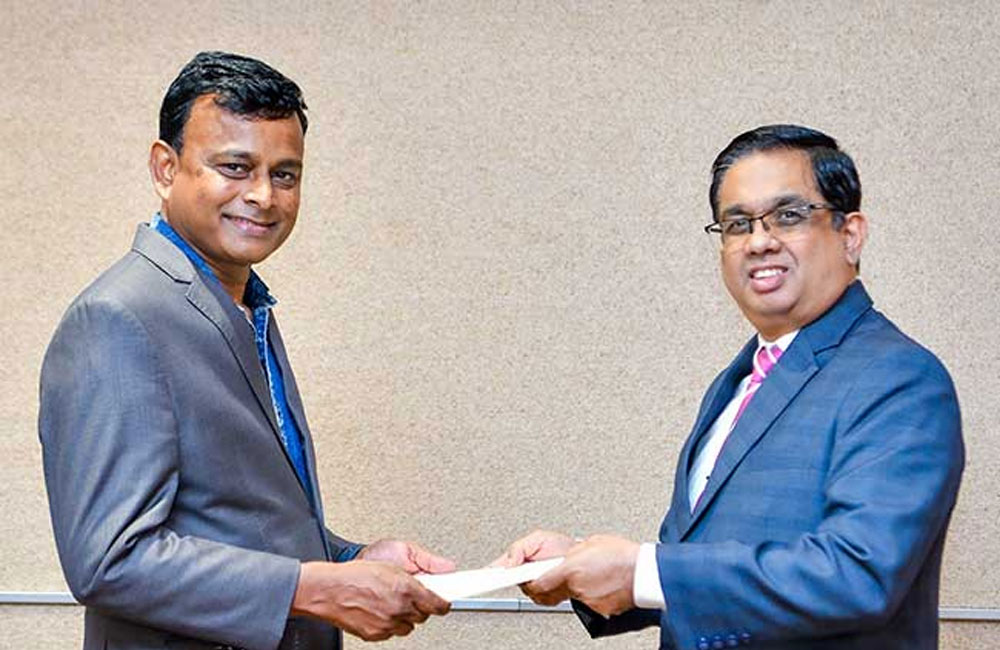
Prabath Chandrakeerthi appointed Commissioner General of Essential Services
Prabath Chandrakeerthi has been appointed as the Commissioner General of Essential Services, the President’s Media Division announced.
The appointment has been made under the powers vested in President Anura Kumara Dissanayake through the Emergency (Various Provisions and Powers) Regulations No. 11(1) issued under Emergency Regulations No. 1 of 2025.
As Commissioner General, Chandrakeerthi will be responsible for implementing and coordinating all activities related to the provision and maintenance of essential services across the country.
He currently serves as the Secretary to the Ministry of Plantation and Rural Infrastructure.
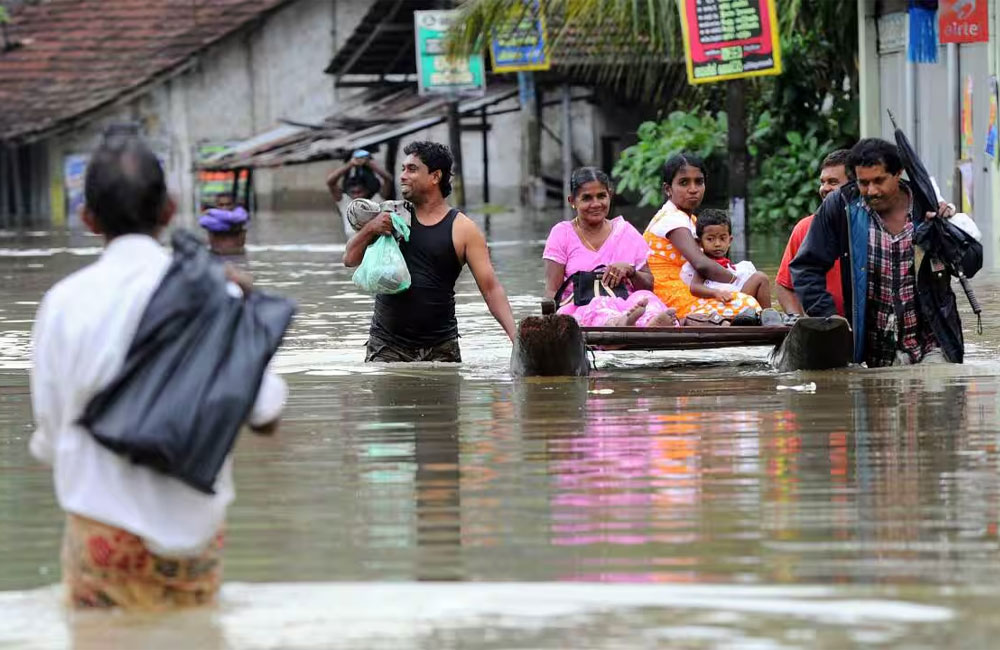
Storm Threat Fades, Flood Crisis Grows: North–East Damage Still Ignored
From NOW....
Leaving aside the blowing up and exaggerations web media do in creating panic and all media forgetting North-East, rational reading of weather reporting indicate,
- a definite reduction in cyclonic threats from early morning today (29 Nov)
- down river low lying areas, especially in Colombo, Gampaha and Kalutara will have flooding and people will have to move out
- Government should also be ready to provide safe places and necessities
- lack of focus on North - East damages are too apparent, needs to be immediately attended to.
Expect media to be rational and non-speculative too.
Kusal
2025 Nov.29/09.15 am
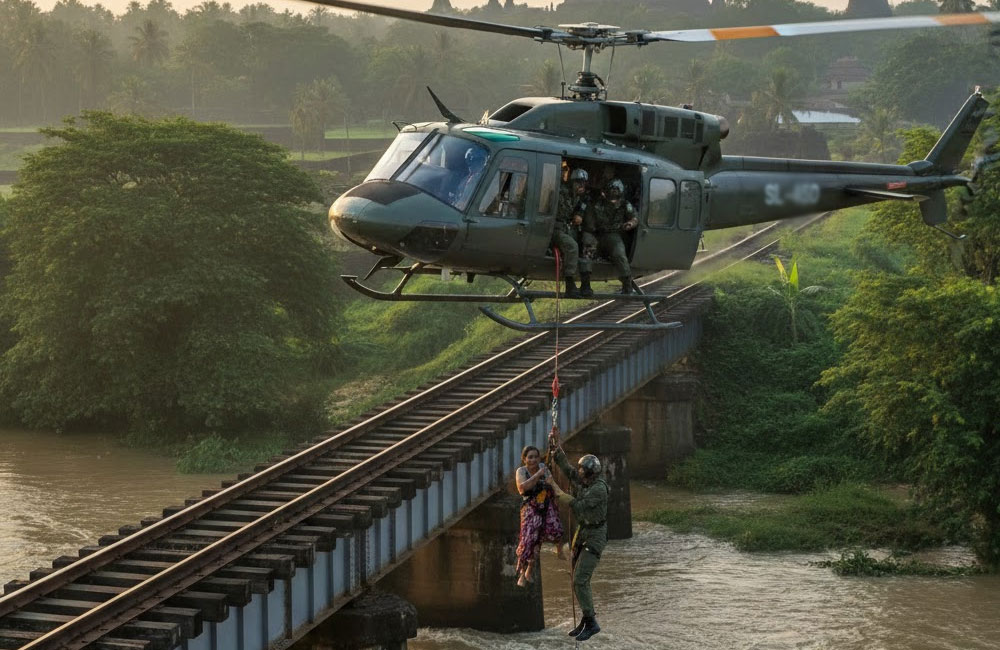
SLAF Airlift Rescues Three Women Stranded on Malwathu Oya Railway Bridge
Three women who became stranded on the Malwathu Oya Railway Bridge in Anuradhapura have been successfully rescued in an aerial mission conducted by the Sri Lanka Air Force.
The operation was carried out using a Bell 412 helicopter from the SLAF’s No. 4 Squadron, which airlifted the women from the bridge and transferred them to the Anuradhapura Air Force Base for their safety. Authorities confirmed that the rescue was completed without complications.
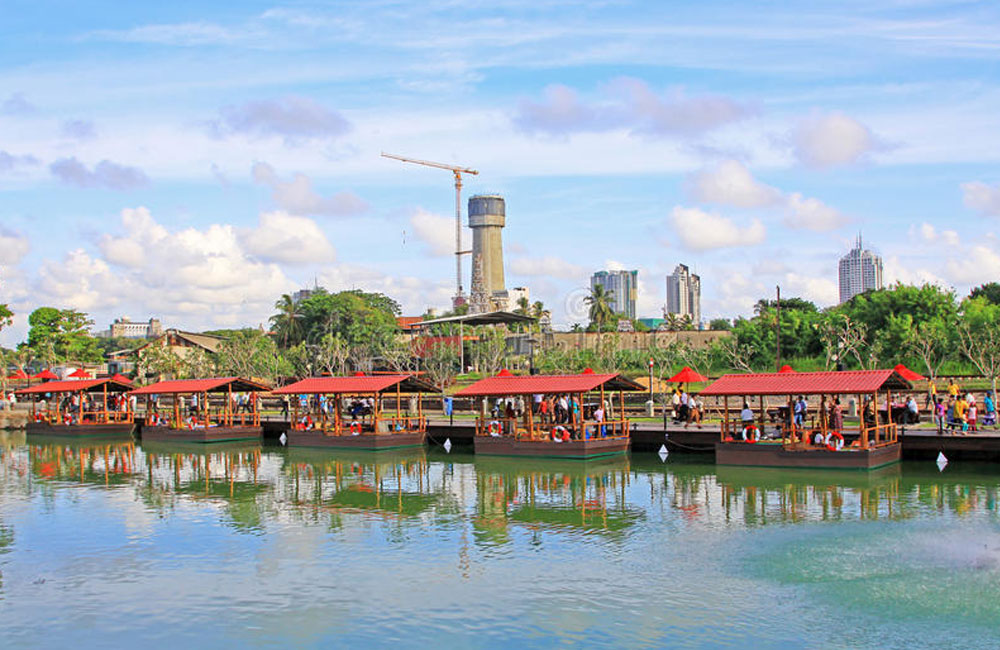
Pettah Floating Market Revamp: Pragmatic Recovery or another Costly Gamble
The National People's Power (NPP) administration has initiated a decisive push to rescue one of Colombo’s most visible development failures: the Pettah Floating Market. Once promoted as a flagship urban beautification project under the Mahinda Rajapaksa government, the complex has long been dismissed as a white elephant expensive to maintain, chronically underutilized, and unable to attract the footfall needed to sustain its vendors.
Now, the Urban Development Authority (UDA) is moving forward with a plan to lease the six-acre property to a Japanese investor in a deal reportedly worth USD 160 million, raising both hope and scrutiny.
Developed in 2014 at a cost of Rs. 344 million with an additional Rs. 50 million spent in 2021—the market’s wooden walkways, 92 shops, and lakeside restaurants offered aesthetic appeal but struggled to generate steady business.
The pandemic only worsened its financial decline, and the shift from curated handicrafts toward unregulated street vending undermined the project’s original concept. For more than two years, maintenance has been minimal, and the facility’s physical condition reflects it.
Against this backdrop, the NPP government’s proposal has two major aims: revitalise a failing public asset and attract foreign investment without burdening the state budget.
The Japanese investor has already remitted an initial USD 16 million, signalling commitment to refurbish the retail spaces and reintroduce the long-abandoned night-market model. The lease will be on an “as-is” basis, transferring responsibility for repairs, operations, and quality upgrades entirely to the investor.
For the government, this approach offers several advantages. The deal converts an underperforming property into a potential revenue stream, reduces UDA maintenance obligations, and aligns with broader urban regeneration goals in central Colombo.
Private-sector management may also introduce higher operational discipline, marketing capability, and the international design sensibility needed to attract tourists. If executed well, the project could integrate with ongoing Beira Lake redevelopment and the Fort–Pettah commercial corridor.
However, concerns remain. Key details of the agreement—including the length of the lease, environmental obligations, and the compensation mechanism for existing tenants have not been disclosed publicly. Traders fear displacement or insufficient compensation.
Critics also question whether another foreign-funded refurbishment risks repeating past mistakes: over-designed, under-researched projects that overlook local economic realities. There is also unease over the UDA’s Rs. 14.9 million spending on a 20-second promotional advertisement at a time when the market itself has deteriorated.
Ultimately, the project’s success will depend on transparency, accountability, and the NPP government’s ability to enforce standards that previous administrations failed to maintain.
If the redevelopment delivers sustained activity, tourist appeal, and commercial viability, the Pettah Floating Market could shift from a symbol of waste to a model of urban recovery. Otherwise, it risks becoming yet another costly experiment on Colombo’s waterfront.
The Urban Development Authority (UDA) is advancing a USD 160 million proposal to lease the Pettah Floating Market to a Japanese investor in a bid to revive the long-neglected complex. The investor, who has already paid an initial USD 16 million, plans to refurbish the 92 shops and reintroduce the night-market concept abandoned years ago.
Developed in 2014 for Rs. 344 million, the market rapidly deteriorated due to low visitor turnout, unregulated vending, and poor maintenance. Existing shop-owners are currently negotiating compensation terms as part of the transition.
The NPP administration argues that private investment is necessary to revitalise the site without additional cost to the state. However, questions remain about transparency, the treatment of tenants, and whether past planning errors may be repeated. The UDA recently drew criticism for spending Rs. 14.9 million on a 20-second promotional advertisement despite the market’s declining condition.
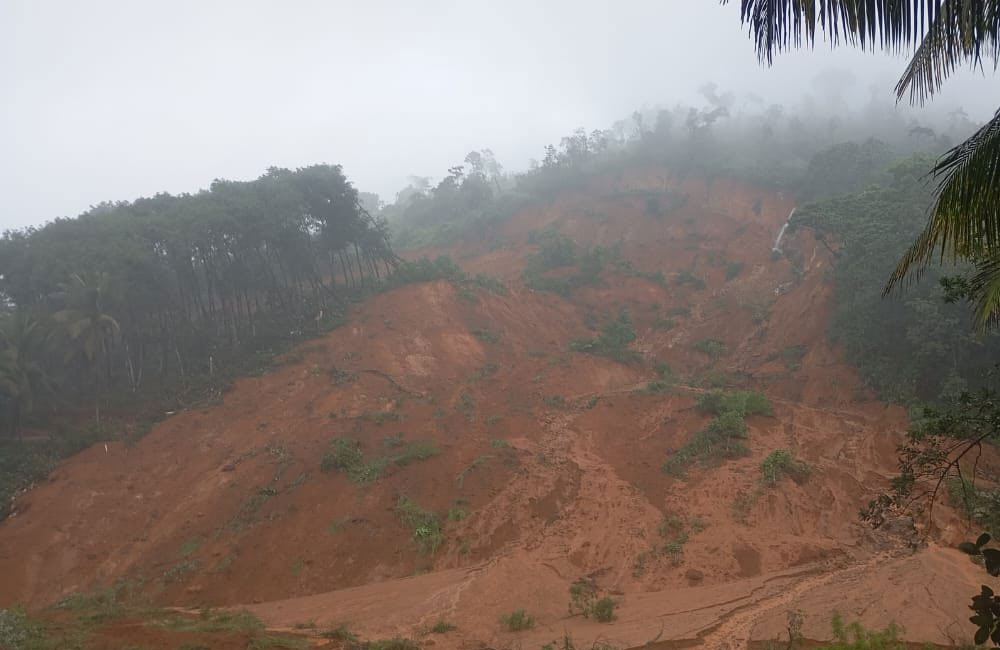
21 People Unaccounted for After Thulhiriya Landslide
Police have confirmed that a landslide in the Monroviyawatte area of Thulhiriya, Warakapola, has left at least 21 people missing.
Authorities have initiated a search and rescue operation to find the individuals who disappeared following the incident. Emergency teams are currently working in the area to assist affected residents and gather further details about the situation.

Credit Boom, FX Flows and Imports Redraw Sri Lanka’s Recovery Map
Sri Lanka’s economic recovery is entering a more complex and revealing phase, as the latest data shows an unprecedented surge in private-sector credit, steady but uneven foreign-exchange inflows, and a renewed spike in vehicle-import-related outflows that could challenge the country’s fragile external stability in 2026.
According to Central Bank data, private-sector credit expanded by Rs 1.365 trillion in the first nine months of 2025 alone a surge not recorded since before the financial crisis. Economists say the rapid credit expansion is being driven by revived consumer confidence, pent-up business investment, and broader policy stability following two years of tough reforms.
But the Central Bank is equally alert to the risks. Officials privately acknowledged that such a steep credit spike, if not supported by steady foreign-exchange inflows and disciplined fiscal policy, could spill into renewed inflationary pressure or create vulnerabilities in bank balance sheets.
Foreign-exchange inflows this year have helped soften those concerns. Tourism receipts, remittances, and export conversions brought in more than US$5 billion by the end of the third quarter, while the CBSL remained a net buyer of foreign currency in the domestic market.
Gross official reserves stayed above US$6 billion throughout the year, with the Central Bank projecting inflows from the IMF and ADB in December that would push reserves beyond US$7 billion the highest level recorded since the 2022 collapse.
Financial-sector insiders say the IMF’s fifth tranche of US$340 and the ADB’s US$370 million budget-support disbursement will be critical not only for reserve adequacy but also for boosting investor sentiment at a time when global financial markets remain volatile.
However, the foreign-exchange outflow trend is shifting and vehicle imports are once again emerging as a pressure point.
With the easing of import restrictions, Sri Lanka has already spent nearly US$1 billion on motor vehicles in 2025. Although the Central Bank noted a drop in the opening of new letters of credit in November, industry sources warn that the appetite for vehicles remains far higher than pre-crisis projections.
If vehicle imports continue at the current pace into early 2026, the trade deficit could widen further, eroding the cushion provided by remittances and tourism, especially during seasonal trough months.
Despite these risks, the Central Bank remains confident of closing 2025 with a current account surplus of around 1% of GDP a rarity for Sri Lanka. Officials believe the recovery in imports is, fundamentally, a sign of economic healing rather than excess consumption.
As growth is expected to hit 4.5% in 2025, the challenge for 2026 will be balancing rising demand with disciplined external-sector management. Economists warn that maintaining stability will require a careful blend of monetary tightening, reserve building, and strict monitoring of import-driven outflows particularly vehicles, electronics and fuel.
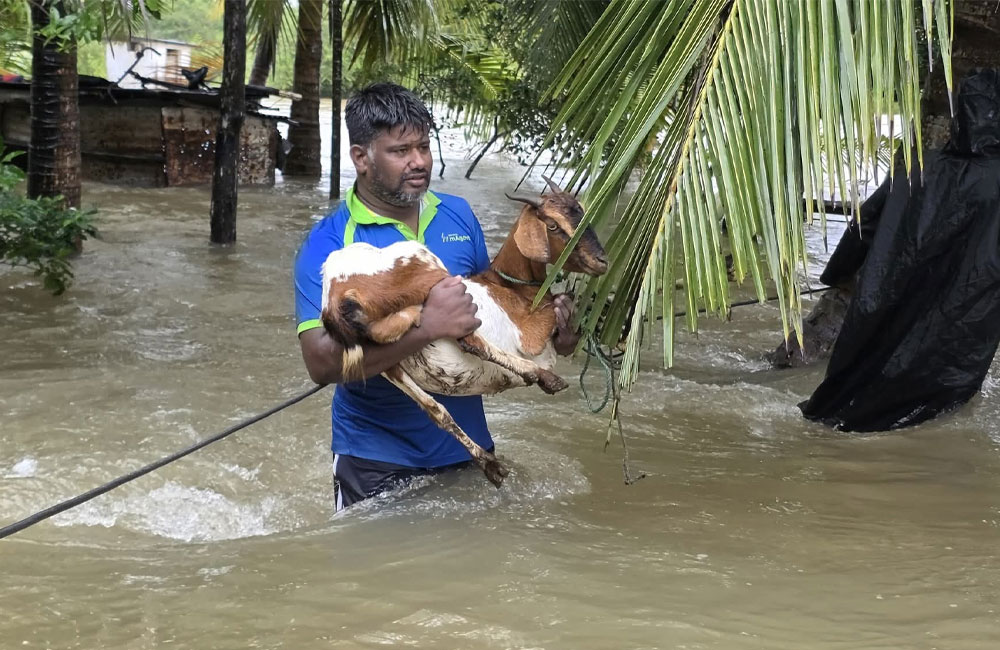
Sri Lanka needs you now, more than ever
Floods and landslides, people trapped on rooftops, vehicles submerged, residents without electricity or unable to cry out for help, cyclonic winds and endless rain thwarting rescue and relief operations. This is Sri Lanka today, facing a devastating natural calamity, one of the worst in decades. True to character, the entire country, especially ordinary folk, have responded admirably.
Each and every one of us have demonstrated yet again our enormous resources of resilience. And our almost genetically engraved trait to reach out to and support those in dire need of help. We have always stood shoulder to shoulder without hesitation, putting aside all differences, political or otherwise. We are doing this even as I write.
While diplomatic missions based in Colombo have expressed their solidarity and support for Sri Lanka’s government during this challenging time, there’s still a lot that our friends abroad can do. Led by the President, government officials, volunteers and countless ordinary citizens are working tirelessly. They are often risking their lives to rescue the stranded, comfort the grieving and deliver urgent essentials to those who have lost everything. This unity is the strength of our nation.
This compassion is the soul of our people. And yet, it must be acknowledged that when the scale of this disaster is so enormous even the strongest nations sometimes need the hand of a friend. Sri Lanka needs the support of all her friends.
It is in this spirit, with humility but also with dignity, that I appeal to our friends overseas, neighbouring countries, humanitarian agencies, corporates and well-wishers around the world to stand with Sri Lanka at this difficult time. Your support, whether through relief supplies, medical aid, logistical assistance, or financial contributions, will directly help families who are suffering and accelerate the country’s recovery. Sri Lanka has had its share of calamities, natural and otherwise.
And yet, the island nation has always come through with its signature smile that says so much about our courage, grace and equanimity. We treat strangers like family. We rush to help the unfortunate and distressed with no thought of reward or cost. Today, we hope the world will extend that same hand to us. Every act of compassion, however small, restores hope. Every act of solidarity strengthens resolve. Every gesture of friendship helps rebuild devastated lives. To those who have already reached out with support and concern, thank you! To those who wish to help this is the moment your compassion will truly matter.
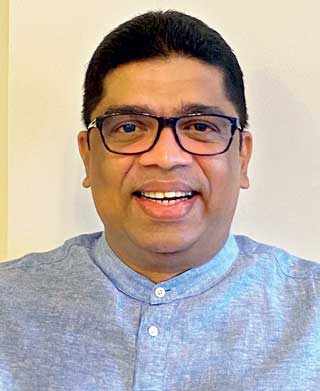 Krishantha Prasad Cooray
Krishantha Prasad Cooray
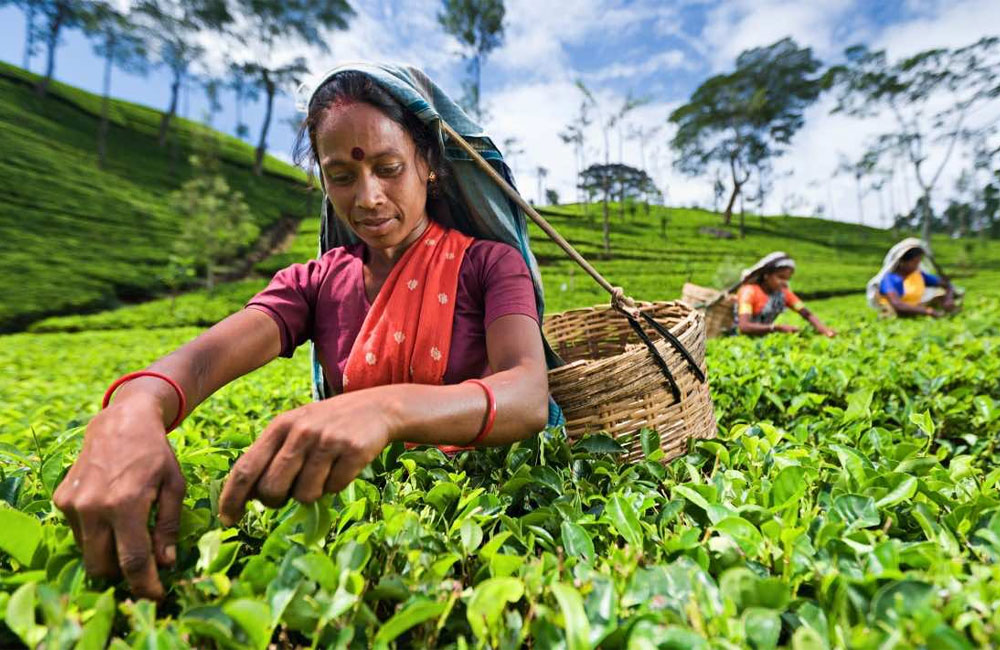
Ceylon Tea Risks Irrelevance without Regenerative Shift and Reform
Sri Lanka’s Ceylon Tea industry is at a critical juncture. Although global demand for premium, ethically sourced tea is rising, Sri Lanka continues to lose influence as faster-moving competitors invest aggressively in branding, sustainability, and new product categories.Industry experts warn that the country risks missing a historic market opportunity unless political leadership and state institutions begin delivering urgent reforms.
Speaking at the Asian International Tea Summit in Colombo, Hayleys Group Managing Director and former Planters’ Association Chairperson Roshan Rajadurai said the only way for Sri Lanka to differentiate itself is to embrace regenerative agriculture, a growing global standard.
He highlighted that Sri Lanka’s tea industry is currently “over-certified” with requirements imposed by buyers that do not translate into higher prices. However, he argued this burden could be turned into an advantage through strategic differentiation.
Rajadurai stressed that global consumers increasingly demand sustainability compliance, traceability, and low-impact production.
“We need to elevate the product as a Regenagri product and approach the market,” he said, referring to the international programme that certifies regenerative agricultural practices. He added that early successes over the past two years especially in agroforestry-based rare teas and specialty teas prove the model is commercially viable.
Official data echoes the urgency. Tea export earnings for October fell 0.21% year-on-year to USD 126.55 million, although cumulative earnings from January to October rose 8.72% to USD 1.289 billion, largely due to strong performance in tea packets, which accounted for 15.18% of export revenue.
Analysts warn these gains remain fragile given global competition and Sri Lanka’s weak marketing visibility.
The political dimension is equally concerning. The NPP government has yet to lay out a comprehensive strategy to modernise production, reposition Ceylon Tea, or exploit sustainability-focused market niches.
Senior industry stakeholders privately express doubts about the minister in charge, citing a lack of English communication ability, limited global exposure, and weak public relations critical deficiencies for a sector that depends on international promotion and trade negotiations. Their concerns are compounded by lethargic ministry bureaucracy and slow decision-making.
Experts argue that without strong political leadership capable of engaging global buyers and investors, Sri Lanka cannot leverage the very certifications and standards that Rajadurai says could distinguish Ceylon Tea as a premium regenerative product.
Sri Lanka has a narrow window to reposition Ceylon Tea not just as a drink, but as a Regenagri-certified, health-focused, sustainable luxury product.
But unless the government empowers professionals, accelerates reforms, and fixes institutional weaknesses, the world’s most respected tea brand risks further decline in a market it once owned.

Rising Imports Challenge NPP’s External Stability Drive in October
Sri Lanka’s external sector delivered a mixed and increasingly complex picture in October 2025, underscoring the delicate balance the new NPP government must maintain as it navigates the post-crisis recovery phase.
While some key indicators show continued resilience, the latest Central Bank data reveals emerging pressure points that could test the administration’s economic governance strategy in the months ahead.
The country recorded a current account deficit for the second consecutive month, reversing the earlier trend of steady monthly surpluses.
Yet, cumulatively, the first ten months of 2025 still reflect a US$1.7 billion surplus, indicating that gains from earlier stabilisation measures continue to cushion the economy.
The NPP government has highlighted this surplus as proof of improved fiscal discipline and strengthened governance, but analysts caution that the underlying structural vulnerabilities remain far from resolved.
A primary concern is the widening merchandise trade deficit, driven largely by a surge in imports. Most notable is the dramatic spike in vehicle imports, which reached US$261 million in October alone, pushing cumulative imports for the year to US$1.46 billion.
After years of restrictions, the reopening of imports has released pent-up demand, but without a parallel increase in export earnings, this trend risks re-inflating external imbalances.
Further adding to the challenge, Sri Lanka’s terms of trade deteriorated in October, with import prices rising faster than export prices. This shift increases pressure on the rupee and potentially deepens the trade deficit if left unaddressed.
However, the services sector continued to provide crucial support. Tourism arrivals increased on both a monthly and annual basis, boosting earnings, which rose 4.9% cumulatively over the first ten months of the year.
Meanwhile, workers’ remittances recorded their highest monthly inflow since December 2020, bringing the year-to-date increase to 20.1%. These inflows remain essential pillars of foreign exchange stability and household financial security.
Foreign investment patterns revealed a mixed sentiment: while government securities attracted net inflows, the Colombo Stock Exchange experienced net outflows, signalling cautious investor behaviour despite the political transition.
By end-October, gross official reserves stood at US$6.2 billion, inclusive of the PBOC swap facility. Although this level is broadly stable, it remains insufficient to fully insulate the country from future external shocks. The rupee’s 5% depreciation by end-November reflects lingering currency pressures.
For the NPP government, October’s performance is a reminder of both progress and persistent risk. Governance reforms and tighter fiscal controls have enhanced credibility, but the widening trade deficit and deteriorating terms of trade highlight the urgent need for an export-led strategy. Without decisive action, Sri Lanka risks drifting back toward pre-crisis vulnerabilities.
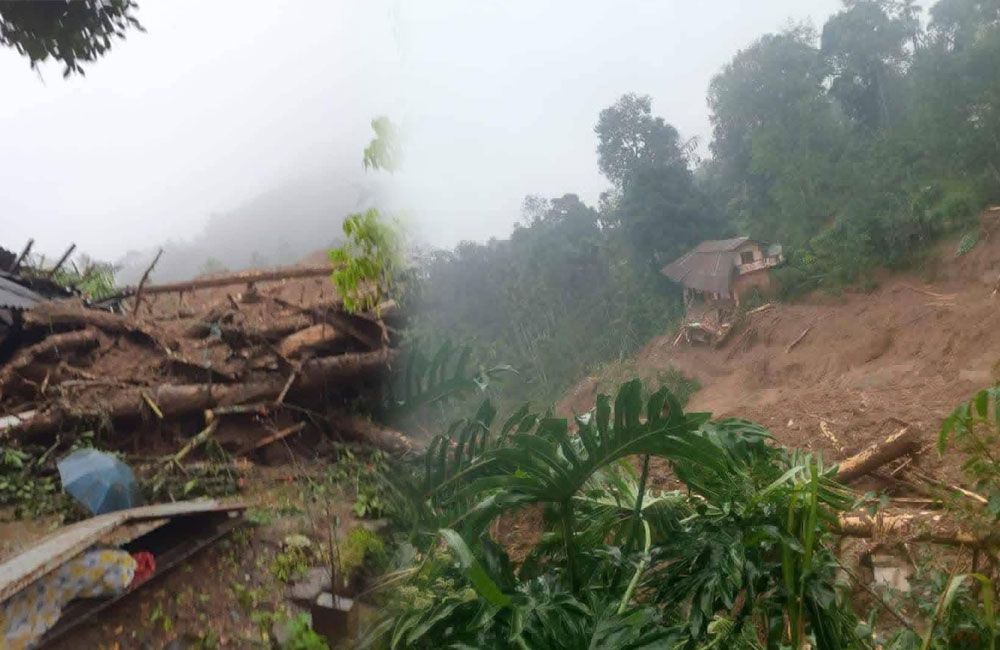
Dozens Feared Trapped After Landslide Hits Kotmale Village
A landslide has occurred in the Rambadagama area of Kotmale, impacting the central part of the village located between the Nuwara Eliya–Pudalu Oya roads. Residents say the landslide began on the night of November 27 and continued into the early hours of the following morning.
Initial reports suggest that several people have lost their lives, while others have been injured. With roads blocked and the terrain unstable, locals are struggling to reach those in need and transport the injured to medical facilities.
The situation has been made worse by a complete power outage and the loss of all telephone networks in the area, severely limiting communication and delaying assistance. Nearly 50 individuals are believed to be trapped, and family members are urgently calling for government intervention to begin rescue operations.
According to the Police Media Spokesperson’s Office, the landslide has been reported, but detailed information remains unavailable due to the communication breakdown. Disaster response teams have reportedly not yet reached the affected location.
Page 49 of 663